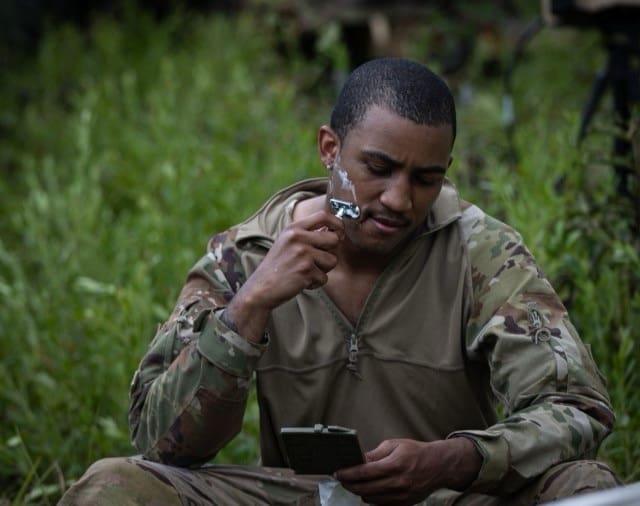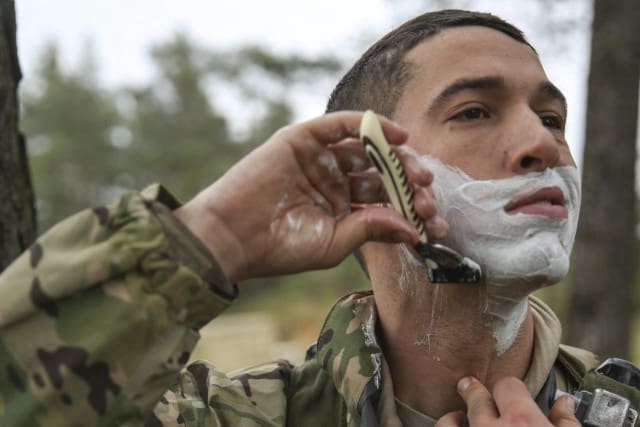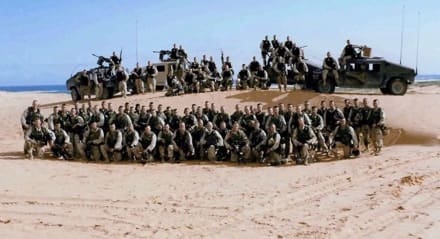The U.S. Army is updating its facial hair grooming policy in an Army Directive that resulted from a force-wide review of military standards. The update reinforces the Army’s long-standing policy that all Soldiers must be clean-shaven when in uniform or civilian clothes while on duty, with temporary exemptions for medical reasons and permanent exemptions for religious accommodations.
The new policy requires exemptions for non-religious reasons to be supported by a temporary medical profile (DA Form 3349-SG) and an exception-to-policy (ETP) memo granted by an O-5 officer in the chain of command. The change, which will be effective the day the directive is signed, will ensure that leaders are actively involved in the process.

Soldiers requiring exceptions must also maintain presentable copies of their required documents when in uniform or civilian clothes while on duty. Similarly, religious exemptions will require religious accommodation documentation.
“This update reinforces our culture that fosters discipline – and discipline equals readiness,” said Sgt. Maj. of the Army Michael R. Weimer. “Through a phased implementation we are working with providers through commanders to effectively address grooming standards to ensure we maintain a professional force.”
The directive also provides guidance on pseudo-folliculitis barbae or PFB, which is commonly known as razor bumps. It emphasizes the roles of healthcare providers and commanders in motivating and supporting Soldiers with PFB to manage their condition and to adhere to grooming standards within a reasonable timeframe.
Army healthcare providers, commanders, and leaders will assist Soldiers by providing education and treatment plans while monitoring Soldiers’ progress toward adhering to the grooming standards. Soldiers who cannot comply with grooming standards within a reasonable time may be administratively separated.
This policy update underlines the Army’s commitment to maintaining both warfighting readiness and a uniform, disciplined force. We will ensure our Soldiers have the resources and support they need to meet Army standards.
By U.S. Army Public Affairs
You can skip to the end and leave a response. Pinging is currently not allowed.
Read the full article here








Leave a Reply